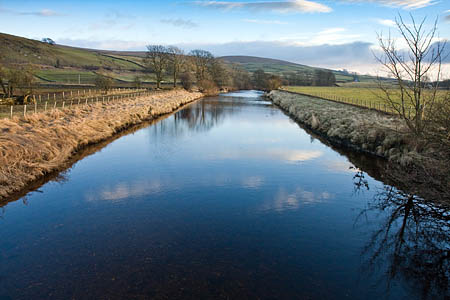Scientists have put a price on Britain’s nature following groundbreaking research.
Living with a view of green space is worth up to £300 a year, according to a report from the UK National Ecosystem Assessment.
And the UK’s rivers, coasts and wetlands contribute £1.3bn-worth of amenity value to the nation each year, as well as a £1.5bn contribution to Britain’s water quality from inland wetlands.
The report attempts to quantify for the first time the economic benefits of the country’s natural world – previously viewed by many as only a burden on the country.
The Department for the Environment, Food and Rural Affairs said the report strengthens the case for protecting nature. It said the benefits to health, wellbeing and from the enjoyment of nature have not always been fully appreciated or valued.
Defra said the UK NEA shows the tendency to focus only on the market value of resources that can be used and sold, such as timber, crops and fisheries, has led to the decline of some ecosystems and habitats through pollution, over-exploitation, and land conversion.
Environment Secretary Caroline Spelman said: “The natural world is vital to our existence, providing us with essentials such as food, water and clean air, but also other cultural and health benefits not always fully appreciated because we get them for free.
“The UK National Ecosystem Assessment is a vital step forward in our ability to understand the true value of nature and how to sustain the benefits it gives us.
“I want our children to be the first generation to leave the natural environment in a better state than it was left to them.
“In 50 years time I want them to be able to look back and see how much the value of nature has grown, not diminished. The findings of this assessment have played a big part in shaping our forthcoming natural environment white paper that will help us revitalise our towns and countryside.”
Professor Bob Watson, chief scientist at Defra and co-chair of the UK NEA, said: “There is an urgent need to better manage our ecosystems and the natural resources they provide us with.
“But until now there has been no clear way of valuing the full range of benefits they provide beyond what we can buy and sell. The UK NEA introduces groundbreaking approaches to measure the value of these services and how they will be affected in future if we do not make the right choices now.
“The NEA shows that we need a more integrated approach to ecosystem management, involving Government, the private sector, voluntary groups and the public working together to protect the services nature provides”
Lord Selborne, chair of the Living with Environmental Change Partnership, said: “From enclosed farmland to open mountains and from freshwater streams to the seas, the terrestrial and aquatic ecosystems of the UK support a wealth of wildlife and contribute a range of services on which we ultimately depend.
“Yet too often we have paid insufficient attention to how these ecosystems should be managed so that they achieve multiple goals, such as the production of food, clean water and recreation. The UK NEA is a significant and important contribution to a better understanding on how we should safeguard our ecosystems and natural resources.”
Earlier this Ms Spelman was forced into a u-turn on selling off England’s public forests after a huge outcry including a half-million name petition against the sale of Forestry Commission land. She announced the setting up of an independent panel on forestry under the chairmanship of the Bishop of Liverpool.
Yet outdoor campaigners, including the Ramblers, said recently announced plans to slash a quarter of Forestry Commission jobs undermined the panel’s work before it had even started.
The Ramblers also voiced their suspicion that the coalition Government’s Red Tape Challenge could see the abandonment of long-fought-for rights of access to the English and Welsh countryside.
And environmental protection laws, including the Climate Change Act, were at risk under the exercise, the Ramblers said. Adrian Morris, Ramblers’ head of campaigns, said: “We will fight strongly against moves by Government to reduce the protection of the environment or people’s ability to access and enjoy it.
“The idea that entire acts dedicated to protecting our countryside, the air we breathe and the places where we walk and live, could be described as red tape seems almost farcical.”
